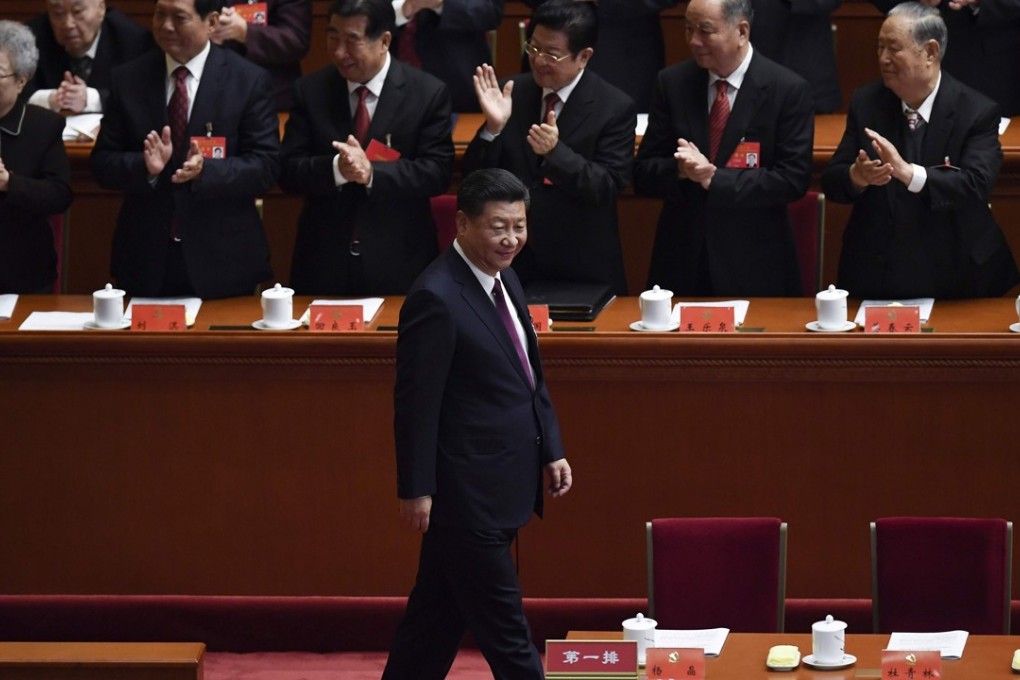Advertisement
All you need to know about Xi Jinping’s remarks on Hong Kong in his report to the party congress
Scholars and lawmakers break down key phrases like ‘comprehensive jurisdiction’ and ‘high degree of autonomy’ that dotted the president’s speech
Reading Time:5 minutes
Why you can trust SCMP

President Xi Jinping on Wednesday set the course for Hong Kong and Macau’s governance, calling for the melding of Beijing’s authority, or “comprehensive jurisdiction”, over the two cities with their “high degree of autonomy” in a natural or “organic” way.
In an unprecedented move, Xi also cited these concepts and the “one country, two systems” model as an integral part of the Communist Party’s governance ideology and canon, as he rolled out his five-yearly work report at the opening of the 19th party congress in Beijing.
Xi did not touch on any pro-independence sentiment in Hong Kong, but said Beijing would not allow anyone to “separate any part of the Chinese territory from China”.
Advertisement
So what does it mean to “combine comprehensive jurisdiction and high degree of autonomy in an organic way”, and why did it matter?
What is Beijing’s “comprehensive jurisdiction” over Hong Kong? Is it something new?
Advertisement
It’s not. The phrase “comprehensive jurisdiction” was first mentioned when Beijing’s State Council, or cabinet, released a 15,500-word white paper spelling out what it called the “accurate” understanding of one country, two systems in June 2014.
Issued at a time when Hong Kong was debating political reform to achieve universal suffrage for the chief executive in 2017, it said Beijing enjoys comprehensive jurisdiction over Hong Kong, while the city was given “high degree of autonomy” to run its affairs only as authorised by Beijing.
Advertisement
Select Voice
Choose your listening speed
Get through articles 2x faster
1.25x
250 WPM
Slow
Average
Fast
1.25x